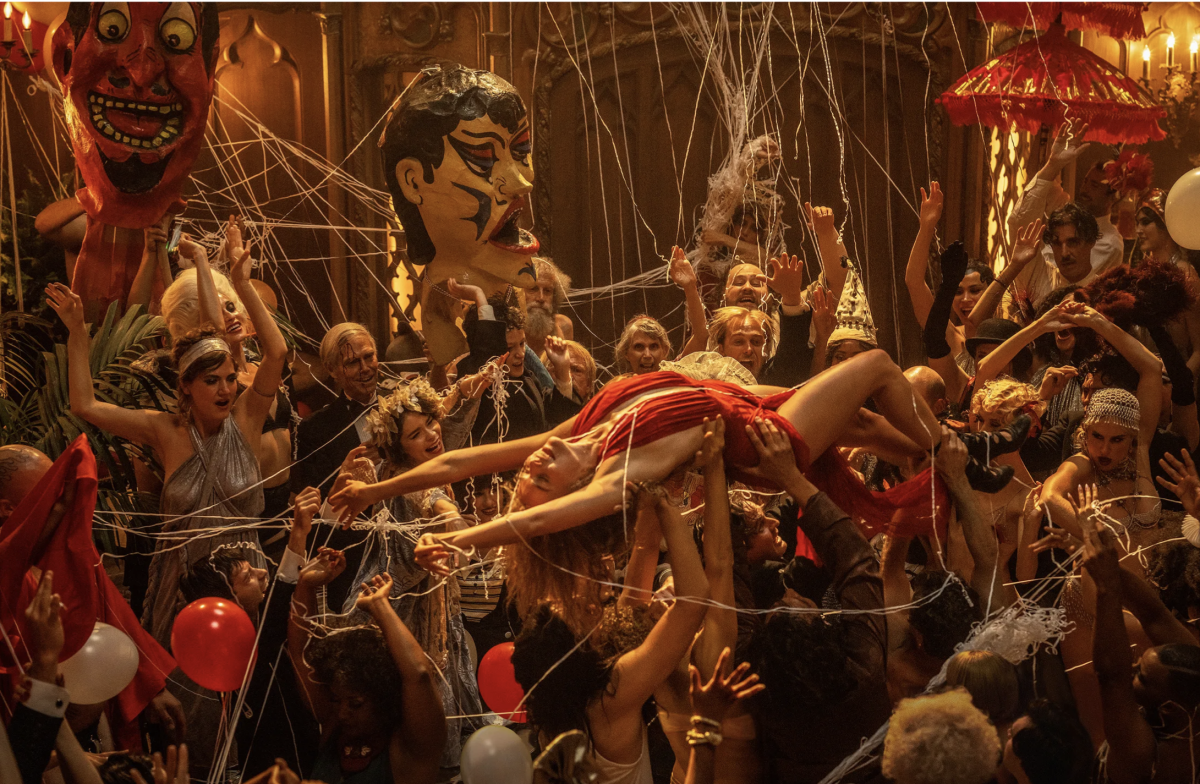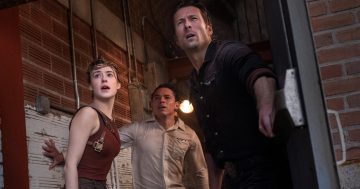
The opening scenes of Hollywood are a Roaring Twenties bacchanal. Photo: Supplied.
A few years ago, while I was staying with friends in a Los Angeles hotel, I thought it would be a good idea to go for a hike up and around the Hollywood sign and have a general look around the hills area.
On returning five hours later I had a few misgivings about my initial enthusiasm and state of fitness at the time, but it did provide perspective. I gazed across the city’s urban sprawl and imagined what it would have been like a century before, all dust and desert and orange groves.
And that is exactly where I landed again while watching the new film, Babylon, written and directed by Damien Chazelle (Whiplash, La La Land).
The film begins with a half-hour explosive Bacchanalian affair at the Bel Air home of a Hollywood producer, setting the scene for what life in this rarified place must have been like during the Roaring Twenties.
We are introduced to the four main characters of the affair: Manny, a minion at the party who we see a lot more of later in the film (Diego Calva); the young wannabe star, Nellie LaRoy (Margot Robbie); Jack Conrad, the ageing Hollywood silent screen star played by Brad Pitt; and the incredibly talented but frustrated jazz trumpeter Sidney Palmer (Jovan Adepo) – all of whom briefly cross paths at the party.
The film starts in 1927. Change, in the form of the first talking picture made that year, is on the way, but not before we are witness to how the silent movie industry worked at the time.
Nellie LaRoy, seen at the aforementioned party, is unexpectedly told to turn up on set in three hours. On the lot of the fictional Kinoscope studios she dazzles and impresses and before long becomes the ‘It girl’.
Manny stumbles into work as Jack’s gofer on one of those grand Ben Hur-like film sets, and Sidney continues to dazzle in second-rate bands that are used to play along with silent movies to give them pep.
When Manny is dispatched to New York for the opening of The Jazz Singer, he calls Jack and tells him everything is about to change and, of course, it does.
From that point, quite predictable narrative arcs for two of the four main characters follow, but there’s quite a weird left turn for Manny when he tries to settle Nellie’s debts with local crime boss James McKay, played with delicious menace by Toby Maguire.
I didn’t love everything about this movie, but there are many aspects I liked. Irving Thalberg, for example, was one of the real people from that time featured in the film (played by Max Minghella).
He barely gets a walk-on part but Thalberg helped form Metro-Goldwyn-Mayer in 1926, was Hollywood’s boy wonder, and produced more than 400 films before pneumonia and an underlying congenital heart condition took his life at 37 in 1936.
It’s easy to single out the other main characters and who they are loosely based on: Nellie could be Clara Bow; Conrad, Douglas Fairbanks, and the list goes on.
Jeff Garland, who you may also know from Curb Your Enthusiasm, turns up as another Hollywood producer on set a number of times. He’s not quite a dead ringer for Harvey Weinstein but I believe his placement was intentional.
Chazelle clearly wants to honour those great years because they genuinely were great in terms of some of the most incredible movies Tinseltown made. However, he also wants to underscore that vision with the utter destructiveness for the many people Hollywood spat out.
All the performances live up to his excellent character portrayals because they are very well written and have space to move within the walls of the script. It almost goes without saying how good Robbie and Pitt are, but for me, the real stars were Diego Calva and Jovan Adepo. I’ve not seen either before but I’m hoping to see more of them again.
In the end, the analysis will have to centre around how many people are interested in that part of Hollywood’s history and are willing to see a solid but not great film that lasts a bit beyond three hours. I liked it a lot, but I’m also quite a fan of the era.
That said, it is really quite a lot of fun and a bit chaotic. I also loved the cameos: Flea from the Red Hot Chili Peppers is excellent as a permanently outraged film producer.
Babylon gets three and a half stars out of five (but I’m biased by the celluloid).
Babylon is showing at all major cinema chains.
Marcus Kelson is a Canberra critic and writer.
Original Article published by Marcus Kelson on Riotact.











